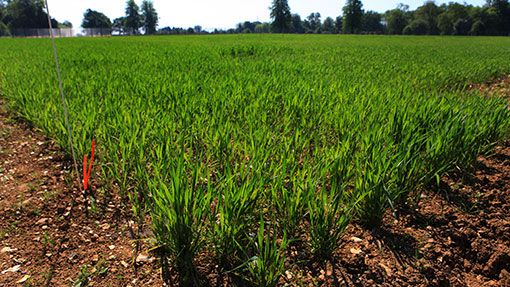GM crops benefit farmers and environment, study claims

Farmers who grow biotech crops benefit from increased yields and deliver more environmentally friendly farming practices, a new global impacts study of GMs claims.
Biotech crops contributed to significantly reducing the release of greenhouse gas emissions from agricultural practices, according to the report.
GM Crops: Global Socio-Economic and Environmental Impacts 1996-2012 was published this week by UK-based consultancy PG Economics.
It said that the cultivation of GMs results in the use of less fuel and additional soil carbon storage from reduced tillage.
In 2012, this was equivalent to removing 27bn kilogrammes of carbon dioxide from the atmosphere – or equal to removing 11.9m cars from the road for one year.
The report also claimed that GMs reduced global pesticide spraying from 1996 to 2012 by 503m kilogrammes, down 8.8%.
This is equal to the “amount of pesticide active ingredient applied to arable crops in the EU for nearly two crop years”, the study claimed.
While the economic benefits of farmers who grew GMs in 2012 was $18.8bn – equal to an average increase in income of $117/ha. Over the 17-year period (1996-2012), the global farm income gain has been $116.6 bn, the report found.
GM crops are also allowing farmers to grow more without using additional land.
If biotech crops had not been available to the 17.3 million farmers using the technology in 2012, maintaining global production levels at the 2012 levels would have required additional plantings of 4.9m hectares of soyabeans, 6.9m hectares of maize, 3.1m hectares of cotton and 0.2m hectares of oilseed rape, the report claimed.
“This total area requirement is equivalent to 9% of the arable land in the US, or 24% of the arable land in Brazil or 27% of the cereal area in the EU (28),” it added.
Meanwhile, herbicide-tolerant technology used in soyabeans and oilseed rape has also contributed to increased yields in some countries, by helping farmers in Argentina grow a crop of soyabeans after wheat in the same growing season, through higher yields and improved weed control.
“In the 17th year of widespread adoption, crops developed through genetic modification delivered more environmentally friendly farming practices while providing clear improvements to farmer productivity and income,” said Graham Brookes, director of PG Economics, co-author of the report.
“Half of the farm income gains and the majority of the environmental gains associated with changes in pesticide use and reductions in greenhouse gas emissions occurred in developing countries.”
Read the full report here
No GM crops are currently being grown commercially on UK farms. However, DEFRA secretary Owen Paterson wants Britain to lead a new farming revolution across Europe by adopting GMs to feed the increasing world population .
The minister has warned that without GM crops, Europe risks becoming “the museum of world farming”.
But environmentalist group Friends of the Earth has insisted there is no evidence that GMs will deliver for farmers or food security.
Read also: Owen Paterson backs EU proposal to fast-track GM crops

